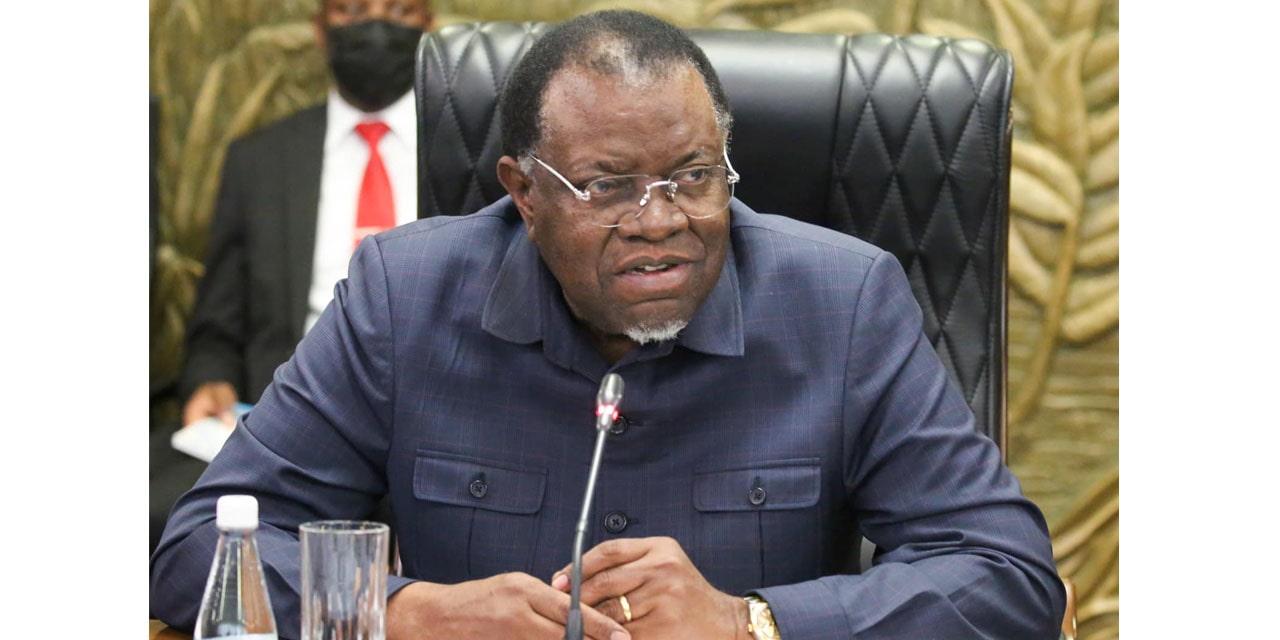Martin Endjala
President Hage Geingob said he has noted with caution that the newly implemented monthly cash transfer of N$ 600 introduced in the place of food bank parcels in April 2022 won’t be sustainable for longer periods and will require new strategic implementations.
The money, referred to as Conditional Basic Income Grant was approved last week by cabinet.
“This naturally presents a long-term challenge, as it will not be sustainable for so many of our people to depend on government support for their livelihood. For this reason, the fight against poverty must be responded to using multifaceted strategies, including engendering job creation through new, complementary engines of growth”, Geingob said during the state of the nation address last Thursday.
He said that government is cognizant that the Namibian society remains unequal, hence, he declared war against poverty and inequalities upon assuming office in 2015 and the subsequent single-minded goal of eradicating poverty in Namibia.
To unlock the potential of Green Schemes through alternative modes of operation, the government advertised seven Green Schemes for leasing. Evaluations to identify suitable operators are still ongoing.
The Namibia Agriculture Mechanization and Seed Implement Programme procured various machinery and equipment for use by crop and livestock farmers. These have been distributed to the Agricultural Development Centres where farmers are able to access them for farming operations. In addition, the President said that the government through the Namibia Agriculture Mechanization and Seed Implement Programme supported the production of 1,060 tons and 117 tons of certified foundation seeds. Adding that the Agricultural sector is the largest employer of young Namibians and through the multiplication of seed-related activities, Geingob said temporary employment was created for 4,519 people.
These interventions are some that the President has emphasized to serve as examples, as to bypass the dependency syndrome towards government from the citizens. Cabinet last week took a decision to support the transition of the Food Bank Programme to a Conditional Basic Income Grant cash transfer of N$600 per household, monthly for the existing 8 339 food bank beneficiaries.
The approval was already effective from last year 1st of April 2022, after the President announced it during the 2022 state of the nation address.
According to Samora Machel Constituency Councillor Nestor Kalola, the food bank ended in February 2022, and in March 2022 the Transition commenced where beneficiaries were getting N$500 per household.
As much as he applauds the increase as approved by Cabinet, he said he is worried that some of the beneficiaries might mismanage their funds, by buying alcohol and other unnecessary things, which he says will result in these beneficiaries coming back to the councillor’s office asking for food parcel because they have misused their funds.
“This then forces me to dig deep down into my own pocket to buy food for these people. I am therefore, calling on them to find amicable solutions to ensure that people do not become slaves of dependency syndrome. The government can come up with agricultural lands, were these people can work and earn money through their own sweat to understand the value of depending on oneself and earning your own money,” Kalola said. In another interview, Rundu Constituency Councillor Paulus Mbangu said that it is poor planning by the government, to only assist 8000 plus people, without thinking of those who were left out.
He questioned the criteria used to select these households, as he believes that the number is too little, and needs to be re-looked.
He further stressed that based on rural area statistics , the food bank parcels are still relevant to communities who he says are often left out.
The transition, came about after consultations were conducted across regions, of which many communities suggested that the food parcels be turned into cash, as sometimes they find themselves having food, but no money to go to the clinics, or buy electricity.




